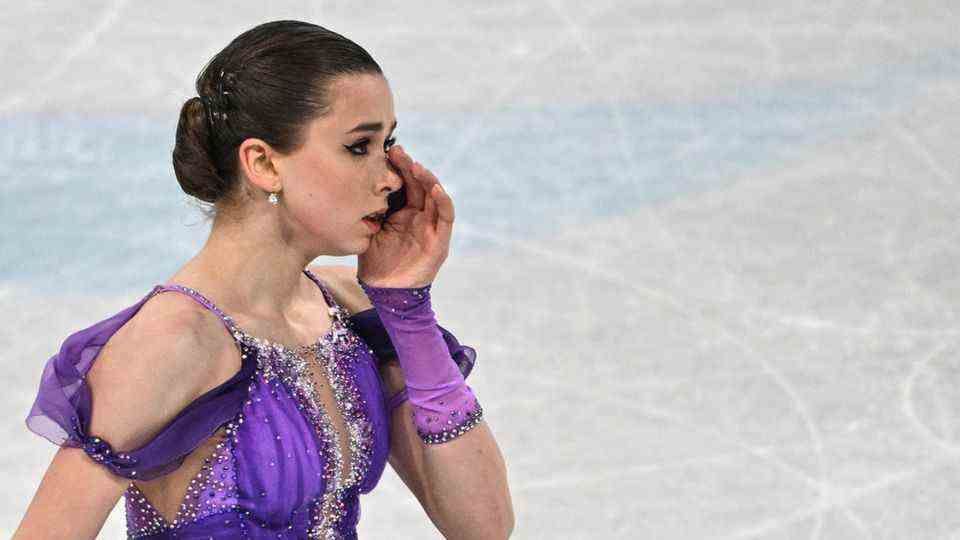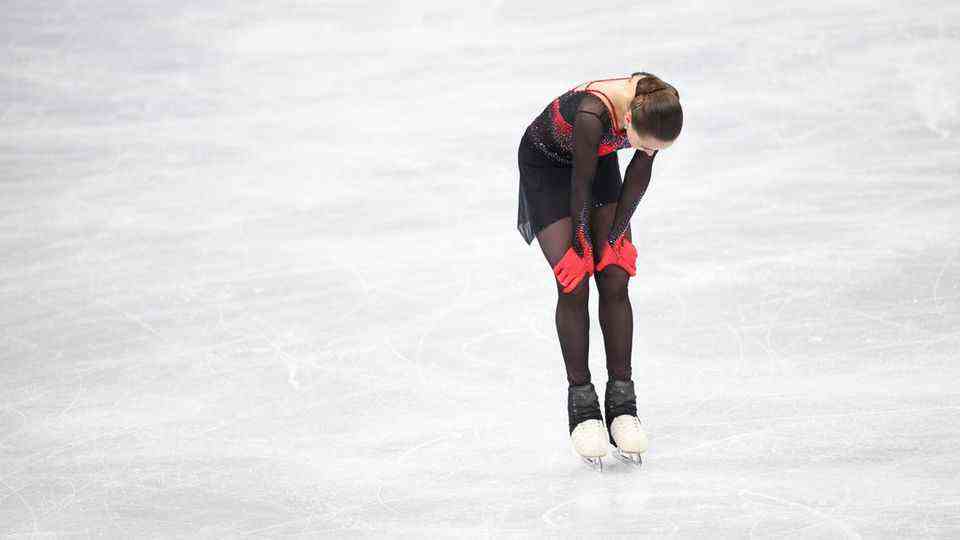doping allegations
Valiewa wants to use the B sample to prove her innocence
Kamila Valiewa during her freestyle in the individual competition. After several errors, she ended up in fourth place
© Peter Kneffel/ / Picture Alliance
Figure skater Kamila Valiyeva failed to win a medal in the individual competition. Now she is fighting to clear the doping allegations.
In the Olympic doping scandal surrounding Kamila Valiyeva, the Russian figure skater wants to prove her innocence with the help of the B test. The 15-year-old will apply for the B sample to be examined because, among other things, there could have been a technical error by the Stockholm anti-doping laboratory when analyzing her doping test, explained Valiyeva’s lawyers. This emerges from the 41-page verdict for the summary proceedings in the case, which the International Sports Court Cas published on Thursday evening.
In her defense, Valiyeva’s lawyers referred to the “extremely low concentration” of the heart drug trimetazidine, which is prohibited under anti-doping rules, and which had been detected in the A sample. During doping controls, athletes provide urine, two-thirds of which is filled into an A sample bottle. The remainder forms the B sample.
Valiyeva’s lawyers: Video shows grandpa with heart medication
In the verdict, the lawyers’ attempt to justify the positive test with Valiyeva’s contact with her grandfather, who has a heart condition, can be read in detail. The banned substance had accidentally entered the athlete’s body through contamination.
Valiyeva’s grandfather often drove her to training and spent a lot of time with her. After a heart transplant, he regularly takes trimetazidine and usually carries the medicine with him. A video showing the grandfather in his car with a pack of the drug also served as evidence.
Valiyeva’s positive doping test on December 25 only became known during the Winter Games in Beijing. The Cas judges nevertheless allowed her to start in the Olympic women’s singles in view of her status as a minor and the incomplete doping process. There, the gold favorite finished fourth on Thursday after days of doping hype and a faulty freestyle.
Long evaluation of Valiyeva’s sample continues to cause resentment
In its verdict, the Cas criticized the course of the Russian doping test harshly. It took more than 40 days from the doping test at the Russian championships at the end of December to the transmission of the results on February 7th. The judges found the fact that the World Anti-Doping Agency argued that the 20-day period for evaluation in a laboratory was only a recommendation to be “quite worrying”.
After all, the athletes are urged to adhere to the highest standards in their anti-doping obligations. It must be possible to evaluate doping tests quickly and early enough before important competitions such as the Olympic Games. The Stockholm laboratory’s reference that it did not have enough staff due to the corona pandemic was “unconvincing”. The delay put Valiewa in a “remarkably difficult situation.”
Wada had accused Russia’s anti-doping agency of complicity in the delay. Rusada did not forward Valiyeva’s doping sample to the Stockholm laboratory with the necessary urgency. Wada accused the Cas of not having applied the provisions of the World Anti-Doping Code. They would “not allow specific exceptions in relation to mandatory provisional suspensions for “protected persons”, including minors,” it said in a recent statement.



